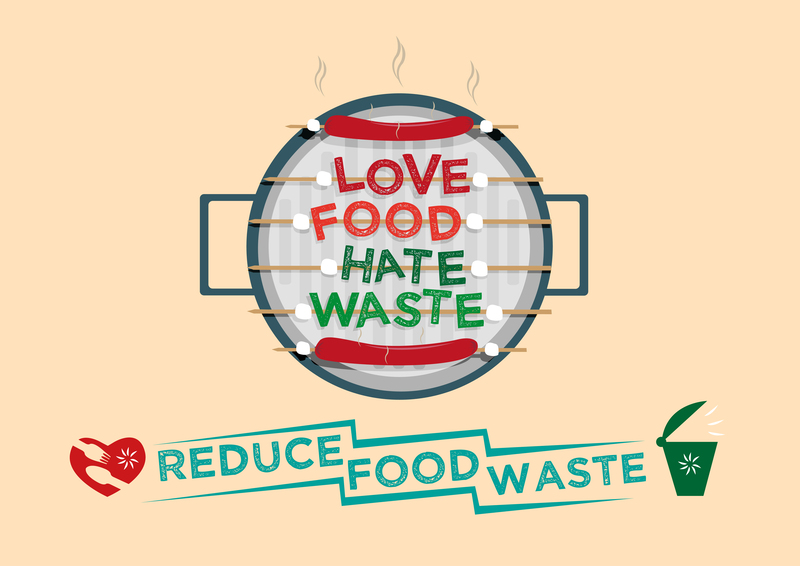How Smart Planning Can Save You Money on Bulky Waste
Bulky waste disposal can be both a logistical headache and a significant drain on your wallet. Items that don't fit regular trash bins--old sofas, broken appliances, mattresses, and garden debris--require special collection and often incur extra costs. However, with strategic planning, you can manage these oversized items more effectively and efficiently, saving yourself both money and hassle in the process.
This comprehensive guide will walk you through practical techniques, cost-cutting ideas, and eco-friendly approaches to help you minimize expenses when handling bulky waste. If you've ever wondered, "How can I save money on bulky trash disposal?"--read on!

What is Bulky Waste?
Bulky waste refers to items that are too large or heavy for standard waste collection. Common examples include:
- Furniture: couches, wardrobes, beds, tables
- Large appliances: fridges, washing machines, stoves
- Mattresses, carpets, and rugs
- Garden waste: branches, logs, lawnmowers
- Renovation debris: bathtubs, toilets, cabinets
Proper disposal is crucial because these items can cause environmental and safety issues if left improperly disposed. Understanding local regulations and options can help you save on disposal costs.
Why Does Bulky Waste Disposal Cost So Much?
Many municipalities and waste management companies charge separate fees for bulk items--sometimes charging per item or by the weight or volume of the waste. Common cost factors include:
- Specialized transportation (large trucks or trailers)
- Manual labor required to move heavy items
- Landfill charges based on item type, weight, or volume
- Environmental levies or recycling fees
Improper planning can lead to extra fees and repeat trips. By embracing a thoughtful approach, you can minimize these costs and perhaps even turn your bulky waste into an opportunity for savings or reuse.
Key Strategies to Save Money on Bulky Waste
1. Audit and Categorize Your Bulky Waste
Before you take any action, make a detailed list of all items you need to discard. Sort them into categories:
- Reusable or donatable items
- Recyclable items (metal, wood, electronics)
- Non-recyclable or broken items
This approach helps you identify options for rehoming, recycling, or reselling instead of sending everything to the landfill.
2. Plan Ahead for Bulky Waste Collection Days
Most municipalities hold scheduled bulky waste collection days, either quarterly or annually. Take advantage of these free or low-cost services by monitoring your local authority's website or waste calendar.
If you wait until after the collection day, you might have to pay for an unscheduled pickup--which can be considerably more expensive.
3. Bundle or Share Bulky Waste Services with Neighbors
Do you and your neighbors have large items to dispose of? Consider pooling resources and booking a bulk pickup together. Many private waste haulers or skip hire services offer discounts for larger loads or joint pickups.
- Split the cost of a roll-off container or skip
- Coordinate pick-up schedules for efficiency
- Reduce the number of collection trips needed
This not only cuts costs but also reduces carbon emissions from duplicate trucks.
4. Sell or Donate Usable Items
One person's trash is another's treasure! If your bulky waste items are still in good condition:
- List them online (Facebook Marketplace, Craigslist, Freecycle)
- Donate to charities, shelters, or reuse centers
- Host a neighborhood giveaway
Many organizations will pick up items for free, saving you both disposal fees and time.
5. Disassemble Bulky Waste When Possible
Larger items often incur higher fees because of their volume. If you have the tools, break down furniture or appliances into smaller, manageable pieces. This could:
- Allow them to fit into regular waste bins
- Reduce the space they take up in a skip or collection truck
- Make recycling specific materials (wood, metal, fabric) easier and more cost-effective
Disassembly is a simple way to save on both hauling costs and landfill charges.
6. Consider DIY Drop-Offs
If you have access to a suitable vehicle and only a few items, it may be economical to transport bulky waste directly to your local recycling center or landfill. Many facilities accept certain items for free or charge lower rates for direct drop-off.
- Always check accepted materials and rules before visiting
- Group items to maximize each trip
- Bring proof of residency if needed
7. Compare Local Waste Disposal Options
Not all waste haulers charge the same. Research and compare prices from the following providers:
- Local municipal waste collection
- Private junk removal companies
- Skip/rent-a-bin services
- Specialized recyclers or charities
Some companies offer flat rates per load, while others charge by weight or item type. By shopping around, you can often find more affordable or convenient options.
8. Avoid Illegal Dumping (Fly-Tipping)
Never dispose of bulky waste illegally. While it might seem like a way to save money, fly-tipping is illegal and can result in hefty fines--not to mention environmental damage.
- Municipalities increasingly use CCTV and reporting hotlines
- Legal disposal protects your community and the environment
Long-Term Benefits of Smart Bulky Waste Management
- Lower costs: Planning ahead minimizes unexpected fees and costly emergency pickups.
- Convenience: Efficient scheduling and categorization mean less hassle and fewer repeated trips.
- Environmental impact: Donating or recycling keeps usable and recyclable materials out of landfills.
- Community improvement: Shared waste solutions help build neighborly cooperation and support local initiatives.
Sustainable Disposal Solutions
Smart planning isn't just about saving money--it's about environmental responsibility too. The more effectively you manage bulky waste, the less material ends up in landfills, and the more resources are recovered. Major cities now require all electronic and hazardous appliances to be recycled--a potential cost-saver if you find the right recyclers or participate in "take-back" programs.
- Participate in community clean-up days--some municipalities waive fees for bulk item drop-offs during these events.
- Look for upcycling projects and creative reuse opportunities for old furniture or wood scraps.
- Check for appliance manufacturers' recycling incentives, especially for electronics and white goods.
Frequently Asked Questions on Saving Money with Bulky Waste
What is the cheapest way to get rid of bulky waste?
Often, the most cost-effective strategy combines several methods: donating usable items, waiting for free municipal collection days, and disassembling or recycling what you can. Always exhaust free or low-cost local government services before turning to paid haulers.
Can I put bulky waste out with my regular trash?
Most locations do not allow you to leave bulky items with weekly trash due to vehicle size limits and landfill restrictions. Check your local regulations--improper presentation can result in fines or rejected pickups.
Are skip hire services worth the cost?
For large renovation or garden projects, skip hire can be cost-effective--especially when costs are split with neighbors. However, it may not be worth it for just a few items; compare with local drop-off rates or scheduled collections first.
How do I know if my item can be recycled or donated?
Visit your municipality's website or use online directories like Earth911 to find local guidelines and options by item. Many nonprofits publish lists of wanted donations. If in doubt, call before dropping items off!
What should I never put in bulky waste?
Hazardous materials--such as paint, chemicals, batteries, tires, and some electronics--require special handling. Consult your local waste authority for proper disposal options; never dump these items with general bulky refuse.

How Smart Bulky Waste Planning Benefits Your Budget--and the Environment
With mindful planning and a few practical strategies, savvy homeowners and businesses can minimize bulky waste disposal costs, reduce landfill usage, and even help their communities.
- Regularly review and audit items for reuse or resale.
- Prioritize scheduled collections and neighborhood partnerships.
- Always choose legal, responsible disposal options.
Start early, research local options, and plan ahead--by doing so, you'll save money and help create a cleaner, greener community.
Conclusion: Smart Planning is the Key to Bulky Waste Savings
Whether you're clearing out a house, upgrading household items, or landscaping outdoors, a thoughtful bulky waste strategy makes all the difference. Smart planning--auditing, bundling, recycling, and community cooperation--can lead to significant savings and environmental benefits.
Next time you face a pile of bulky trash, junk, or oversized waste, remember: smart planning doesn't just save you money--it creates a positive ripple effect for your wallet, your neighborhood, and the planet.